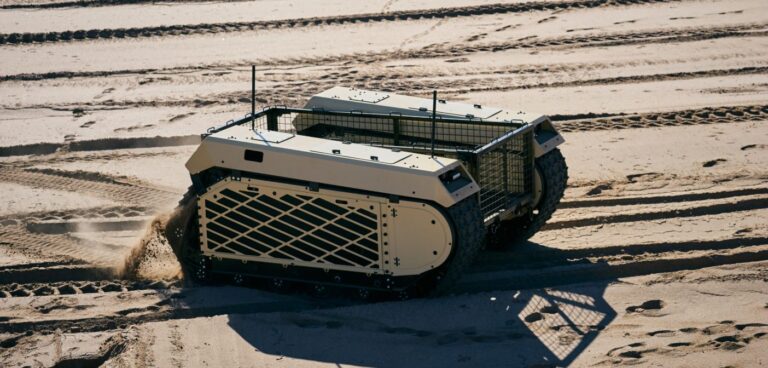The European Commission has provided a grant to a consortium of several defence, cybersecurity and technology companies to develop a European standard for unmanned ground systems (UGSs).
The iMUGS (Integrated Modular Unmanned Ground System) project aims to set the requirements for the standardisation of UGSs. It will be set by seven EU member states led by Estonia and featuring Belgium, Finland, France, Germany, Latvia and Spain.
According to the project, Europe will require thousands of UGSs in the next 10-15 years, with iMUGS expected to become the preferred European solution for integrating into armed units.
The consortium, which includes 13 organisations such as Milrem Robotics, GT Cyber Technologies and Safran Electronics & Defence, aims to develop a modular and scalable architecture for hybrid manned-unmanned systems.
It said it will create a European wide ecosystem for aerial and ground platforms, command, control and communication equipment, sensors, payloads, and algorithms
Using an existing UGS from Milrem Robotics, the consortium will address operational challenges and look to enhance interoperability, increase situational awareness and develop faster decision-making.
Furthermore, the project aims to collect operational know-how as well as developing concepts for the combined engagement of manned and unmanned assets. It will also consider the ethical aspects of robotics, artificial intelligence, and autonomous systems.
It will also use virtual and constructive simulation environments for specific missions.
Kuldar Väärsi, CEO of Milrem Robotics, said: “iMUGS is an excellent example of cooperation in Europe: seven countries have created common requirements for a future robotic system and have a common understanding of how the system is to be deployed.
“The result of iMUGS will be a modular and scalable solution that will not only fill all the needs of Europe but be also deployable worldwide.”
The consortium will look to demonstrate the UGS in operational environments and climatic conditions as part of military exercises. The first demonstration is planned for the second quarter of 2021 and will be held in Estonia.








